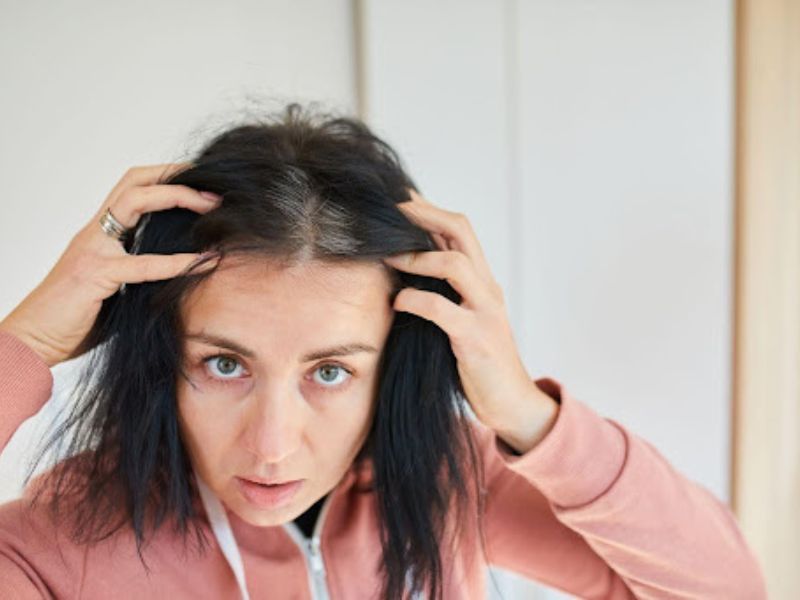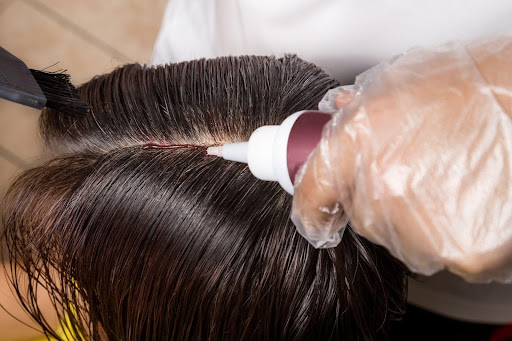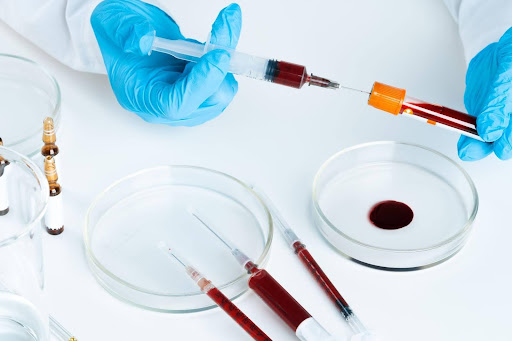How to Stop Hair Fall During Menopause: Effective Tips and Treatments

How to Stop Hair Fall During Menopause: Effective Tips and Treatments
Dealing with Menopause Hair Loss: What You Need to Know
Menopause is a significant transition in a woman’s life, marked by the end of menstrual cycles and a host of physical and emotional changes. Among these changes, menopause hair loss is a common yet often distressing symptom. Many women experience hair fall in menopause, leading to concerns and questions about what causes hair loss in menopause and how to stop hair fall during menopause. This blog aims to provide a comprehensive understanding of menopause-related hair loss and explore effective remedies and management strategies.


Read More: The Ultimate Guide to Exercise During Menopause
Menopause and Its Impact on Hair
Menopause typically occurs between the ages of 45 and 55, signaling the end of a woman’s reproductive years. This transition is characterized by a decline in the production of estrogen and progesterone, two hormones that play a crucial role in maintaining hair health. The hormonal changes during menopause can disrupt the growth cycle, leading to hair thinning and increased hair fall. Several factors contribute to menopause hair loss, including hormonal imbalances, genetic predisposition, and lifestyle factors. The reduction in estrogen levels is particularly impactful, as estrogen helps to keep hair in the growth phase (anagen phase) for a longer duration. When estrogen levels drop, hair may enter the resting phase (telogen phase) prematurely, resulting in increased shedding and noticeable thinning. Other factors such as stress, poor nutrition, and underlying medical conditions can exacerbate hair loss during menopause. It is essential to consider these factors when addressing hair loss after menopause.Identifying Menopause Hair Thinning and Loss
Signs and Symptoms
Menopause hair loss can present in various ways, including overall hair thinning, noticeable patches of hair loss, and a decrease in hair volume. Women may also notice a wider parting line or more hair shedding during brushing and washing. It’s important to distinguish between normal hair shedding and excessive hair loss, which may warrant further investigation and intervention.Diagnosing Menopause Hair Loss
A thorough assessment by a healthcare professional can help determine the underlying causes of hair loss. This may include a review of medical history, physical examination, and blood tests to check hormone levels, thyroid function, and other relevant parameters. In some cases, a scalp biopsy may be necessary to evaluate the hair follicles and rule out other potential causes of hair loss.Effective Menopause Hair Thinning Remedies
Nutritional Support
A balanced diet rich in essential nutrients is crucial for maintaining healthy hair. Key nutrients that support hair health include:- Protein: Hair is primarily composed of keratin, a type of protein. Ensuring adequate protein intake from sources like lean meats, fish, eggs, and legumes can support hair growth.
- Iron: Iron deficiency can lead to hair thinning. Include iron-rich foods such as red meat, spinach, and lentils in your diet.
- Biotin and Zinc: These micronutrients play a vital role in hair growth and strength. Biotin-rich foods include eggs, nuts, and seeds, while zinc can be found in meat, dairy products, and whole grains.
- Omega-3 Fatty Acids: Found in fish, flaxseeds, and walnuts, omega-3 fatty acids help nourish hair follicles and promote healthy hair growth.

Hormone Replacement Therapy (HRT)
Hormone replacement therapy can help alleviate menopause symptoms, including hair loss, by replenishing estrogen levels. However, HRT is not suitable for everyone and may carry certain risks. It is essential to consult with a healthcare provider to determine if HRT is a viable option based on individual health status and risk factors.Topical Treatments and Medications
Several topical treatments and medications can help manage menopause hair loss:- Minoxidil: An FDA-approved topical treatment, minoxidil can stimulate hair growth and slow down hair loss. It is available over-the-counter and can be applied directly to the scalp.
- Finasteride: This oral medication, typically used for male pattern baldness, may also be prescribed off-label for women experiencing significant hair loss. Finasteride works by reducing the levels of dihydrotestosterone (DHT), a hormone linked to hair loss.
Scalp Care and Hair Care Practices
Maintaining a healthy scalp environment is essential for promoting hair growth. Regularly cleansing the scalp to remove excess oil and debris, using gentle hair care products, and avoiding harsh treatments like excessive heat styling and chemical processing can help prevent further damage and hair fall during menopause.
Natural Remedies and Alternative Therapies
Several natural remedies and alternative therapies may support hair health during menopause:- Essential Oils: Oils like rosemary, lavender, and peppermint have been shown to promote hair growth and improve scalp health. These can be diluted with carrier oils and massaged into the scalp.
- Herbal Supplements: Some herbs, such as saw palmetto and black cohosh, may help balance hormones and reduce hair loss. However, it is crucial to consult with a healthcare provider before starting any new supplements.
- Acupuncture: This traditional Chinese medicine practice may help improve blood circulation to the scalp and support overall hair health.
How to Stop Hair Fall During Menopause
Stress Management
Chronic stress can exacerbate hair loss by disrupting the hair growth cycle and contributing to hormonal imbalances. Implementing stress-reducing practices such as mindfulness meditation, yoga, and regular physical activity can help manage stress and support hair health.Regular Exercise
Engaging in regular physical activity can improve blood circulation, reduce stress, and promote overall well-being. Exercise also helps regulate hormone levels, which can positively impact hair growth and reduce hair fall during menopause.Read More: The Ultimate Guide to Exercise During Menopause
Adequate Sleep
Quality sleep is essential for maintaining overall health, including hair health. Aim for 7-9 hours of sleep per night to support hormonal balance and reduce stress, both of which can help prevent hair loss.Hydration
Staying well-hydrated is crucial for healthy hair. Drinking enough water ensures that hair follicles receive the necessary nutrients and oxygen for optimal growth.Additional Support and Professional Treatments
Laser Therapy
Low-level laser therapy (LLLT) is a non-invasive treatment that uses red light to stimulate hair follicles and promote hair growth. It can be used at home with laser combs or helmets, or in clinical settings. Studies have shown that LLLT can be effective in reducing hair loss and promoting hair regrowth in women experiencing menopausal hair loss.Platelet-Rich Plasma (PRP) Therapy
PRP therapy involves drawing a small amount of the patient’s blood, processing it to concentrate the platelets, and then injecting the platelet-rich plasma into the scalp. The growth factors in PRP can stimulate hair follicles and promote hair growth. This treatment has gained popularity for its potential effectiveness in managing hair loss.
Hair Transplant Surgery
For women experiencing significant hair loss, hair transplant surgery may be an option. This procedure involves moving hair follicles from areas of the scalp with healthy hair growth to areas with thinning or balding. While it is a more invasive option, it can provide a long-term solution for hair restoration.Key Takeaway
Menopause hair loss can be a challenging and emotional experience, but understanding the underlying causes and exploring effective remedies can help manage this transition. By addressing hormonal imbalances, maintaining a balanced diet, adopting healthy hair care practices, and considering both medical and natural treatments, women can take proactive steps to mitigate hair loss after menopause and promote overall hair health. Every woman’s experience with menopause is unique, and it is essential to consult with healthcare professionals to develop a personalized approach to managing hair loss during this phase. With the right strategies and support, it is possible to maintain healthy, vibrant hair and embrace the changes that come with menopause confidently. By incorporating these insights and strategies, women can navigate the challenges of menopause hair loss with greater confidence and achieve healthier, more resilient hair.Citations
- Healthline. (n.d.). Hair Loss and Menopause. Retrieved from Healthline
- National Center for Biotechnology Information (NCBI). (2016). Hair Loss in Women. Retrieved from NCBI
- Medscape. (2021). Hair Loss and Menopause. Retrieved from Medscape
- National Center for Biotechnology Information (NCBI). (2003). Hair Growth and Disorders. Retrieved from NCBI

Sruthakeerthi Shenoy
Sruthakeerthi is an experienced content writer known for her engaging and informative writing. She stays updated with the latest insights to create accurate and empathetic content. Working closely with menopause warriors, she crafts engaging and informative pieces that support and inspire women on their perimenopause and menopause journey.
Facebook
LinkedIn
X | Twitter
WhatsApp

Sruthakeerthi Shenoy
Sruthakeerthi is an experienced content writer known for her engaging and informative writing. She stays updated with the latest insights to create accurate and empathetic content. Working closely with menopause warriors, she crafts engaging and informative pieces that support and inspire women on their perimenopause and menopause journey.
View All Posts >




